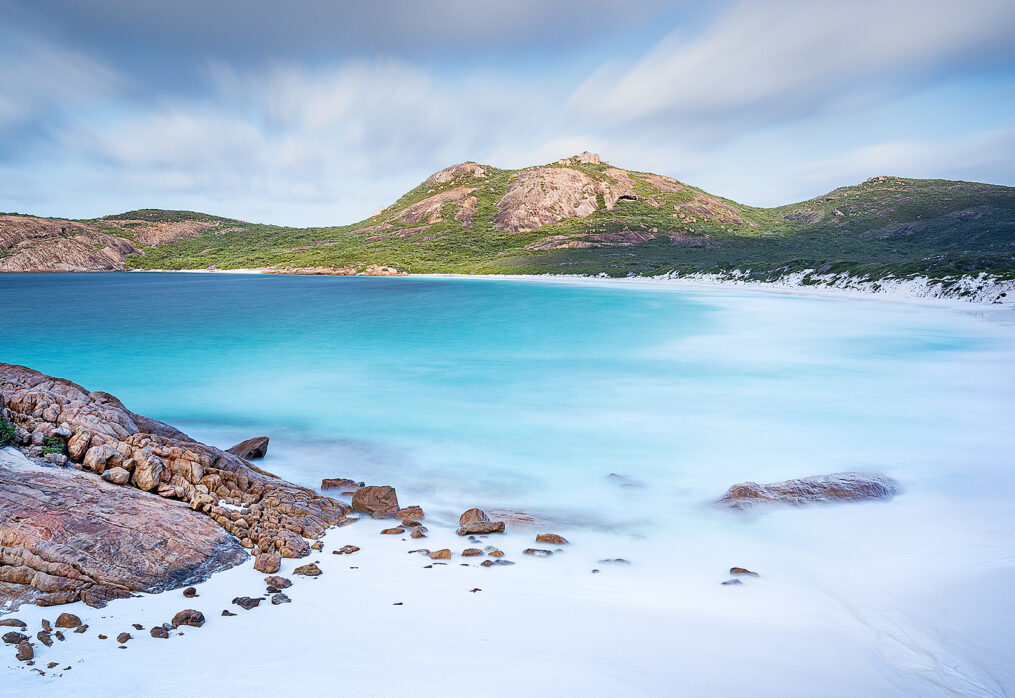What filters are best for landscape photography?
There are three (3) main types of filters that are used in modern-day, digital photography.
Simply these are; Circular Polarisers, Neutral Density Filters (and their derivatives) and UV Filters.
Circular Polarising Filters
Circular Polarising Filters, or polarisers are the most common camera filters associated predominantly with landscape photography.
Polarisers act by filtering and organising light into linear pathways. They are effective in removing reflected light from shiny, metal or wet objects such as wet rocks and leaves. If you have ever used a circular polariser on your camera, you may have noticed the effect it can have on the sky. As you rotate the filter through its range of polarisation, the filter reduces glare in the atmosphere resulting in the sky appearing much bluer than what we can perceive with the naked eye. It can be an effective tool for landscape photographers by increasing saturation and contrast in your images, producing bluer blues and greener greens, however you may need to exercise caution as always, less is more.
Note, if you are photographing with super-wide angle lens, for example less than 24mm, please be aware that a polarising filter may produce a distinct arc of polarisation, most notably in the sky, resulting in images that have an unbalanced sky in terms of contrast and colour.
UV Filters
UV or Ultraviolet Light Filters are not required for use with digital cameras in terms of what they were originally designed for. With film cameras, UV Filters acted as the name suggests, by filtering UV light and preventing it from hitting each film exposure.
With digital cameras, UV filters are used primarily for protecting the front element of your lens. As with anything that you place in front of your lens, make sure that you are paying for high-quality glass. If you have invested in some expensive, quality lenses, you may be inadvertently impacting on the quality of your resulting image by placing an inferior filter in-front of your lens.
A number of photographers choose to go without a protective UV filter for this reason, as they want to ensure they achieve the maximum quality possible for each shot. If you are shooting in windy or dusty environments, or close to the coast where you may be experiencing salt-spray, a UV filter can be of great benefit in looking after your investment.
Neutral Density Filters
Neutral Density filters, or ND filters, are basically filters that control the amount of light that can reach the sensor at any given time.
These filters are essentially darkened glass, or resin filters, that can be used to increase or control your exposure times at any time of the day, where your shots would ordinarily be blown out or overexposed. ND filters are used for creative effect whereby you can use them to blur the surface of water, show movement in a crowd, or overhead clouds, or go to the extent of having a crowd completely vanish or turning the ocean into a mirror-like surface with a sufficient exposure time.
ND filters are an incredibly useful tool and one they we certainly would not go without. We will revisit filter options and talk more about Neutral Density filters in a future article.
In summary, filters are a vital tool for landscape photography. They can protect your lenses, but more importantly they give you creative control by being able to control light, redirect it and giving you freedom to photograph at any time of the day. As always, purchase the best quality filters that you can afford. You certainly don’t want the filters that you are using to impede on resulting image quality.
We will look closer into Polarisers and Neutral Density filters in future articles.




